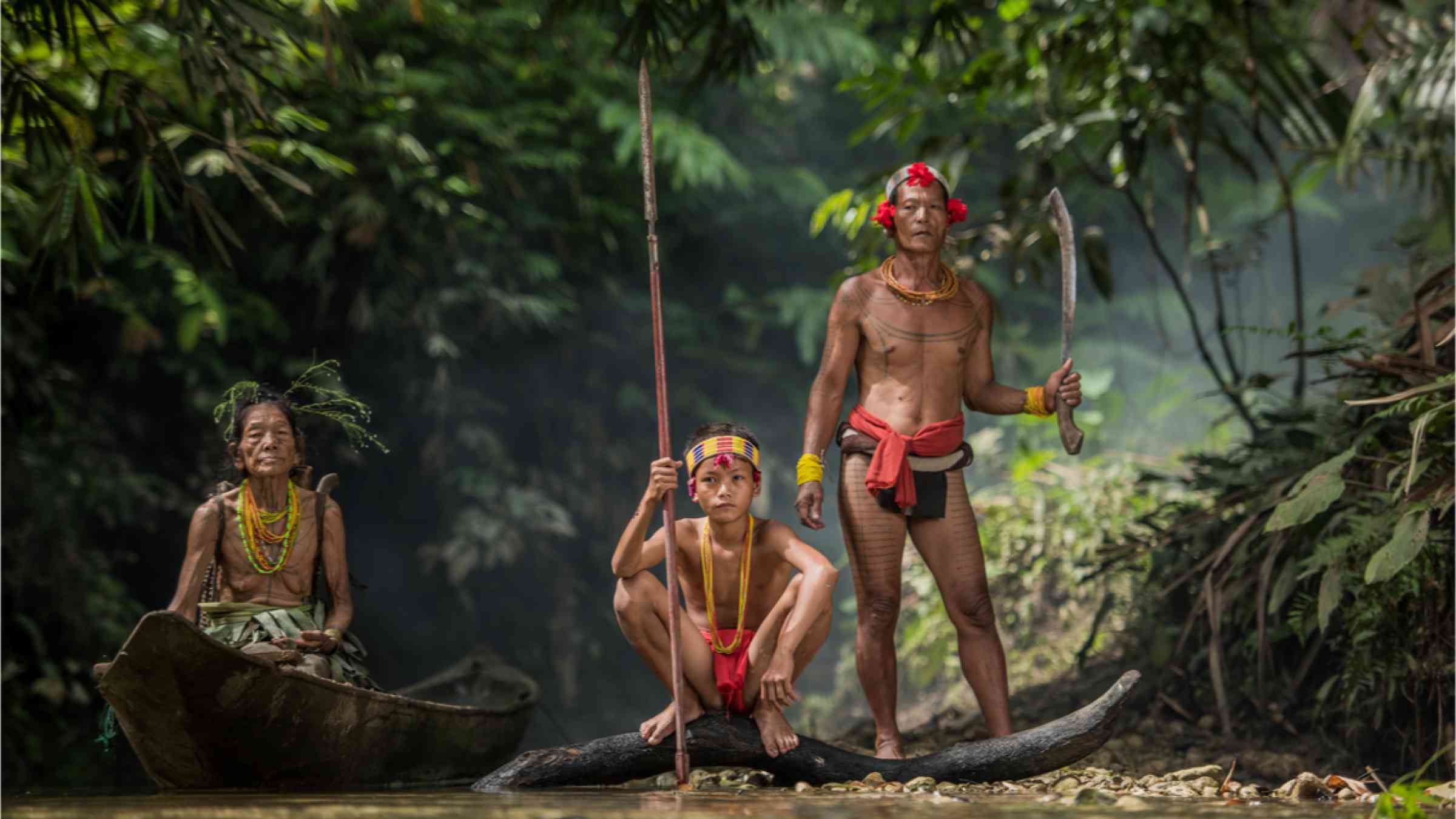Please help us improve PreventionWeb by taking this brief survey. Your input will allow us to better serve the needs of the DRR community.
Indigenous peoples and forest communities are central to tackling the climate crisis – but they need finance

Forests, and the communities who protect and manage them, are critical in tackling climate change and nature loss. From COP26, guest blogger Gustavo Sánchez explains why they can no longer be ignored in the distribution of climate finance and describes a new fund that gets money directly to local forest level.
Forests are powerful emission sinks and crucial in mitigating the impacts of climate change. And they must be protected: deforestation can be a major source of greenhouse gas emissions.
Yet, still, despite abundant research showing the immense potential of forests for mitigation, the climate finance distributed is woefully inadequate: less than 3% goes towards conserving forests and restoring ecosystems.
Research also shows, time and again, that Indigenous Peoples and forest communities, with their local knowledge and expertise in working with forest ecosystems and natural processes, play a fundamental role in conserving forests.
Yet, in many countries, Indigenous Peoples’ and forest communities’ rights to land and resources are still not recognised. And when they are, these people, like the forests they care for and protect, are overlooked in the distribution of climate finance (PDF) – which prioritises centralised monitoring systems over on-the-ground conservation actions.
Without finance to strengthen local organisations, improve resilience of local systems for forest management and build technical expertise embedded in communities, there can be no sustained emissions reductions.
New fund channels finance to the forests
The Mesoamerican Alliance of Peoples and Forests (Alianza Mesoamericana de Pueblos y Bosques or AMPB) is an alliance of Indigenous Peoples and community forestry organisations representing the major forests of the Mexico and Central America region.
Since its creation, AMPB has been advocating for territorial rights, ancestral knowledge and free, prior and informed consent of Indigenous Peoples and forest communities.
But despite focused and sustained efforts to secure rights to land and resources, it has become clear to us that forest communities need direct access to reliable finance to support their own initiatives, as well as be able to manage these initiatives themselves.
This is where the Mesoamerican Territorial Fund (FTM) comes in. The fund offers a fresh, new approach to the distribution of climate finance, ensuring funds flow directly – without the influence of third parties or intermediaries – to Indigenous Peoples and forest communities.
In this fund, communities will present projects according to their own needs and experience, with the appropriate allocation of funds.
– Levi Sucre, Costarrican Indigenous leader
Fund roll-out
Recognising all the work Indigenous and forest communities are doing to tackle climate change with little to no support from climate finance, the AMPB has been investing in local capacities and incubating its local fund for several years now. In 2021 the AMPB began the pilot phase of the FTM, shaped around the key principle of getting finance directly to local people.
The fund is rights-based – seeking to support projects and activities that recognise and implement the rights of Indigenous Peoples and local communities (IPLC), and respect their cultures and traditions.
It also recognises that a highly participatory approach is fundamental to success, where open dialogue and negotiation with all key actors invested in the sustainable and equitable management of our territories, including governments, markets and international development agencies.
Performance-based financing is another of the fund’s key characteristics. This puts communities in the driving seat – they create their own projects, set their own project deliverables and specify what inputs they’ll need to deliver their targets.
The FTM documented experiences, successes and lessons learnt from the 12 projects rolled out under the pilot. These form a solid foundation for supporting future projects of Indigenous and forest communities of Mesoamerica.
By 2022 the FTM will be a fully established legal entity with an established governance structure, operating regulations and system for communication and accountability. Also, at this stage, the fund will operate as a robust and safe option for mitigation and adaptation to climate change through the promotion of equal partnerships.
And by 2025, we plan for the FTM to be fully consolidated, demonstrating the capacities of governance, political advocacy, and realisation of rights, through the implementation of climate finance projects that support the most vulnerable communities while helping achieve sustainable development.
Recognition, rights, and climate finance access – join us at COP26
At a COP26 side event on Tuesday, 9 November (3-4.15pm) we, alongside partners IIED, Ford Foundation, PRISMA foundation, Mainyoito Pastoralist Alliance, Rights and Resources Institute and Rainforest Foundation Norway (RFN) will explore how to elevate recognition of knowledge of IPLC, discuss measures for getting the rights and knowledge of IPLCs respected, and find ways forward given the stark reality that not enough climate finance is reaching local communities.
As part of the event, we’ll share the evolution of the FTM to date, including success stories of climate finance being channelled directly to Indigenous and forest communities of Mesoamerica and how this is building resilience of these forest guardians.
We’ll discuss key principles on which the fund is based, inviting perspectives and experiences from a diverse panel – including voices from IPLC, rights-based research organisations and other local actors championing action and mechanisms for getting climate finance into local hands.
Explore further
Please note: Content is displayed as last posted by a PreventionWeb community member or editor. The views expressed therein are not necessarily those of UNDRR, PreventionWeb, or its sponsors. See our terms of use
Is this page useful?
Yes No Report an issue on this pageThank you. If you have 2 minutes, we would benefit from additional feedback (link opens in a new window).